ISO Certification in Tunisia 2025 - Complete Guide for Businesses, Industries and Export Growth
Tunisia, a land of opportunity bridging Europe and Africa, is on the rise. From its vibrant manufacturing clusters to its growing ICT sector, from agriculture and tourism to pharmaceuticals and automotive, Tunisian businesses are increasingly realizing that ISO Certification in Tunisia is not just a badge of compliance—it’s a gateway to international markets, credibility, and long-term growth.
This guide is your complete story of ISO certification in Tunisia, weaving together the “why,” the “how,” and the “who.” If you’ve been asking yourself questions like “how to get ISO certification in Tunisia?” or searching for the Best ISO Consultants and Top 10 ISO Consultants in Tunisia, you’ve come to the right place.
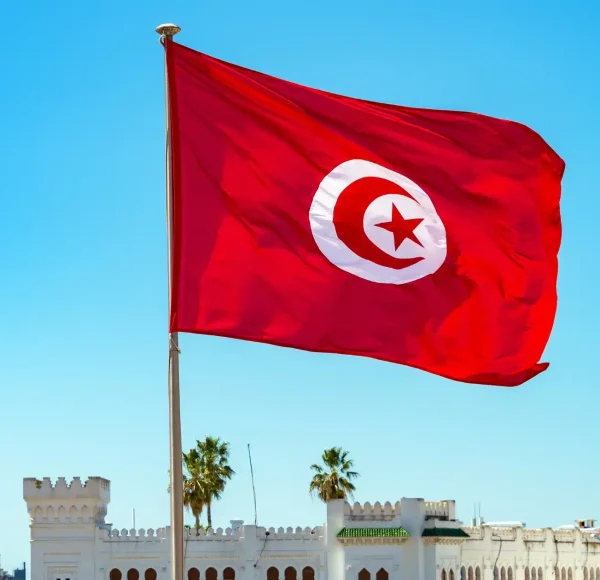
What is ISO Certification?
ISO Certification is an official approval that a company’s management system, product, service, or process meets the requirements of international standards published by the International Organization for Standardization (ISO). These standards are globally recognized benchmarks that ensure quality, safety, efficiency, and consistency across different industries.
When a business in Tunisia achieves ISO Certification, it means an independent certification body has verified that the organization follows documented procedures and best practices that align with global expectations. ISO does not directly issue certificates; instead, accredited certification bodies perform audits and grant the certification once compliance is proven.
For example:
- ISO 9001 focuses on quality management.
- ISO 14001 ensures environmental responsibility.
- ISO 22000 guarantees food safety practices.
- ISO 27001 secures information and data.
- ISO 45001 promotes occupational health and safety.
Why ISO Certification Matters for Tunisia’s Growing Economy
Tunisia’s economy has always been shaped by its strategic geography. With ports on the Mediterranean, strong ties to Europe, and a skilled workforce, the country is a preferred hub for outsourcing, automotive manufacturing, agribusiness, ICT, and even aerospace. However, the modern global business environment is also shaped by standards, compliance, and, most importantly, trust.
This is where ISO Certification in Tunisia comes in. International clients, investors, and governments want to work with organizations that can prove their quality, safety, and reliability. Having ISO 9001, ISO 14001, ISO 22000, or ISO 27001 means Tunisian companies can confidently say, “We meet global standards.”
It is not just about a certificate on the wall. For Tunisian companies, ISO certification brings:
- Operational efficiency → streamlining processes, reducing waste, and cutting costs.
- Export readiness → meeting the strict requirements of EU and global buyers.
- Employee confidence → workers trust that safety and quality are priorities.
- Customer trust → whether it’s food, tech, or banking, certification builds credibility.
Informational Addition: The National Institute for Standardization and Industrial Property (INNORPI) is the official ISO member body for Tunisia. INNORPI is responsible for establishing national standards and ensuring that local businesses align with international best practices. This local-to-global alignment is a key part of building a trusted business environment.
Key Industries in Tunisia Benefiting from ISO Certification
Let’s walk through the industries that are driving Tunisia’s growth and how ISO standards empower them.
Manufacturing and Automotive Sector Tunisia has become a hub for automotive components and electronics, exporting to Europe and beyond. Here, ISO 9001 in Tunisia plays a vital role. This quality management system ensures that companies can consistently deliver world-class products to international clients.
- Benefits: Consistency in product quality, meeting EU automotive supplier standards, and reduced defects.
Agriculture and Agribusiness Tunisia is famous for its olive oil, dates, seafood, and agriproducts. For exporters, ISO 22000 in Tunisia and FSSC 22000 are game-changers. They prove food safety, traceability, and compliance with international regulations.
- Benefits: Easier access to European markets, improved food safety, and stronger customer loyalty.
Tourism and Hospitality As a country that thrives on tourism, Tunisia’s hotels, resorts, and travel agencies benefit immensely from ISO certification. ISO 9001 improves service quality, while ISO 14001 in Tunisia ensures eco-friendly operations, which appeals to environmentally conscious travelers.
- Benefits: Better guest satisfaction, sustainable tourism practices, and a competitive edge in global tourism.
Banking and Financial Services With the rise of fintech and digital banking platforms, ISO/IEC 27001 in Tunisia has become critical. Data breaches and cyber threats are on the rise, and ISO 27001 proves that banks are taking security seriously.
- Benefits: Stronger information security, protection against cyber risks, and increased trust among digital users.
ICT and Startups Tunisia’s ICT industry is growing fast, with startups providing software, AI, and outsourcing services. For them, ISO certification in Tunisia means credibility with international partners. ISO 27001 ensures data protection, while ISO 9001 helps with process efficiency.
- Benefits: Winning global contracts, building trust with international clients, and structured growth for startups.
Request A Free Quote
Types of ISO Certification in Tunisia
- ISO 9001 Certification In Tunisia
- ISO 14001 Certification In Tunisia
- ISO 45001 Certification In Tunisia
- ISO 27001 Certification In Tunisia
- ISO 22000 Certification In Tunisia
- ISO 17025 Certification In Tunisia
- ISO 13485 Certification In Tunisia
- ISO 20000-1 Certification In Tunisia
- ISO 18001 Certification In Tunisia
- ISO 50001 Certification In Tunisia
- ISO 22301 Certification In Tunisia
Other Certification In Tunisia
- BIFMA Certification
- HACCP Certification
- CE Mark Certification
- HALAL Certification
- ROHS Certification
- GMP Certification
Key Industries in Tunisia and Their ISO Certification Requirements
Tunisia hosts a diverse set of industries that are increasingly relying on ISO certification to compete locally and globally. Below is a detailed overview of major sectors, leading companies, applicable ISO standards, and the key benefits of certification:
| Industry | Major Companies / Examples | Relevant ISO Standards | Key Benefits |
|---|---|---|---|
| Oil & Gas | National operators & local service firms (e.g., ETAP, regional contractors) | ISO 9001, ISO 14001, ISO 45001 | Ensures operational safety, environmental compliance, and eligibility to bid for major national & international tenders. |
| Mining & Phosphates | Compagnie des Phosphates de Gafsa, fertilizer processors | ISO 14001, ISO 45001, ISO 50001 | Promotes environmental stewardship, reduces workplace incidents, and improves energy efficiency. |
| Automotive & Manufacturing | Sousse/Sfax suppliers, Poulina Group (manufacturing divisions) | ISO 9001, IATF/industry-specific standards, ISO 14001 | Ensures supply-chain acceptance, consistent product quality, waste reduction, and defect control. |
| Food & Agribusiness | Groupe Délice, olive oil cooperatives, date & seafood exporters | ISO 22000, FSSC 22000, ISO 14001 | Guarantees food safety, traceability, export readiness, and buyer confidence in international markets. |
| ICT, Fintech & Telecom | Tunisie Telecom, growing fintech & software exporters | ISO/IEC 27001, ISO 20000-1, ISO 22301 | Secures sensitive data, ensures IT service continuity, and builds trust with international clients. |
| Healthcare & Pharmaceuticals | Local pharma manufacturers, private hospitals, clinical labs | ISO 13485, ISO 9001, ISO 45001 | Improves product quality, patient safety, and regulatory alignment for exports. |
| Tourism & Hospitality | Hotels & resorts (Hammamet, Djerba, Sousse chains) | ISO 9001, ISO 22000, ISO 14001 | Enhances guest satisfaction, ensures food safety, and promotes sustainable tourism practices. |
Insight: Across Tunisia, companies seeking growth, operational efficiency, and global recognition increasingly hire ISO consultants Tunisia, engage in ISO audit services Tunisia, and invest in ISO training Tunisia to achieve certification and maintain compliance with international standards.
Benefits of ISO Certification in Tunisia
When Tunisian businesses embrace ISO Certification, the advantages extend far beyond mere compliance:
- Market Access → Certified Tunisian products and services meet stringent EU and international import standards, giving exporters a competitive edge in global markets.
- Efficiency → Implementing ISO standards reduces errors, minimizes waste, and streamlines workflows, helping companies save time and cut operational costs.
- Employee Safety → ISO 45001 ensures safer workplaces, protecting employees in industries such as manufacturing, construction, and mining, and boosting overall workforce morale.
- Customer Trust → Certification demonstrates reliability and quality, strengthening brand reputation and building long-term loyalty among clients and partners.
- Environmental Impact → ISO 14001 promotes eco-friendly practices, helping Tunisian businesses reduce environmental footprints while aligning with global sustainability goals.
- Data Protection → ISO 27001 safeguards digital information, protecting sensitive data for fintech, ICT, and other technology-driven companies.
For sectors like oil and gas, agriculture, tourism, ICT, and mining, ISO Certification in Tunisia is no longer optional. It is a strategic investment that ensures growth, credibility, and readiness for global partnerships.
The Role of ISO Auditors Tunisia and ISO Consultants
Getting certified isn’t something a company can do overnight. This is why ISO auditors Tunisia and consultants play such a crucial role. They guide organizations step by step—from gap analysis to documentation, training, and final audit readiness.
If you’re searching for the No1 ISO Consultants Company in Tunisia, you should look for consultants who offer:
- Gap analysis → understanding where your company stands today.
- Customized roadmaps → tailored ISO certification strategies.
- Training for ISO trainee programs → building internal auditor capacity.
- Mock audits → preparing staff for the real certification audit.
- Ongoing support → helping maintain compliance year after year.
Remember: working with the Best ISO Consultants or even the Top 10 ISO Consultants in Tunisia can cut certification timelines, reduce costs, and make compliance sustainable.
ISO Training Tunisia – Building Internal Capacity
Beyond certification, organizations in Tunisia are realizing the value of ISO training Tunisia. Training ensures that staff are aware of the standards and can maintain compliance without relying fully on external consultants.
Types of training include:
- Awareness training for all employees.
- ISO trainee programs for internal auditors.
- Specialized training for ISO 27001 (IT teams), ISO 22000 (food safety teams), or ISO 14001 (environmental officers).
This approach ensures sustainability—companies don’t just get certified, they stay certified.
Informational Addition: Many Tunisian companies, especially in the manufacturing sector, find that integrating multiple standards like ISO 9001 (quality) and ISO 45001 (occupational health and safety) can provide a more holistic management system. This approach streamlines processes and reduces the overall cost and effort of separate certifications.
ISO Certification Cost Tunisia – What You Should Know
A common question is about the ISO certification cost in Tunisia. While we cannot give fixed pricing (because costs vary by company size, sector, and number of locations), here’s what influences it:
- Type of ISO standard (ISO 9001 vs. ISO 27001).
- Business size and complexity.
- Number of sites in Tunisia or abroad.
- Duration of the certification audit.
- Need for training or documentation support.
The key takeaway: working with experienced consultants helps reduce rework, save time, and optimize cost. It is always better to view certification as an investment in efficiency and global growth rather than just an expense.
Step-by-Step - How to Get ISO Certification in Tunisia
Many businesses wonder “how to get ISO Certification Tunisia?” Here’s a simplified roadmap:
-
01
Choose your ISO Standard
Decide whether you need ISO 9001 Tunisia (quality), ISO 14001 Tunisia (environment), ISO 27001 Tunisia (information security), or ISO 22000 Tunisia (food safety). -
02
Hire ISO Consultants Tunisia
Work with the Best ISO consultants to analyze gaps, train staff, and build your management systems. Top ISO consultants provide guidance to align processes with international standards efficiently. -
03
Develop and Implement
Create procedures, manuals, and employee training. Utilize ISO trainee programs and internal audits to ensure the management system is effectively embedded across your organization. -
04
Internal Audit and Review
Conduct ISO audit services Tunisia to verify that your systems are functioning as intended. Identify gaps or opportunities for improvement and prepare for the formal certification audit. -
05
External Certification Audit
An accredited certification body visits your company in Tunisia, reviews your documentation, performs the on-site audit, and issues the certificate upon successful evaluation. -
06
Surveillance and Recertification
Annual audits ensure that your systems remain compliant, and continuous improvement is maintained across all processes.
Success Story - How ISO Certification Transformed a Tunisian Food Exporter
A mid-sized food exporter based in Sfax, Tunisia, wanted to expand its products into European markets. The company faced strict EU regulations on food safety and traceability. They partnered with Maxicert, one of the Top ISO Consultants in Tunisia, to achieve ISO 22000 Certification.
The Challenge:
- Outdated food-safety procedures
- Limited traceability of raw materials
- Staff unfamiliar with international ISO standards
Our Approach:
- Conducted a gap analysis to identify critical compliance areas.
- Developed customized food safety procedures aligned with ISO 22000 standards.
- Trained internal staff through ISO trainee programs, ensuring sustainable compliance.
- Performed internal audits and prepared documentation for the certification body.
Results Achieved:
- Successfully obtained ISO 22000 Certification within 6 months.
- Streamlined food-safety processes, reducing operational errors by 25%.
- Improved traceability and compliance, opening doors to new EU export contracts.
- Staff became ISO-trained, reducing reliance on external consultants for audits.
Key Takeaways:
This example illustrates how Tunisian businesses can leverage ISO certification to boost credibility, operational efficiency, and market access. By partnering with experienced consultants like Maxicert, companies achieve not just certification, but measurable business growth.
Why Choose the No1 ISO Consultants Company in Tunisia?
With so many ISO consultants available, Tunisian companies often search for the No1 ISO Consultants Company. What makes the best consultants stand out?
- Experience across industries.
- Local presence in Tunisia, with knowledge of cultural and regulatory contexts.
- Strong relationships with certification bodies.
- Proven success stories with leading Tunisian companies.
- Ability to provide not just certification support but also long-term improvement.
Choosing the Best ISO Consultants ensures your business is not just certified—it is also future-proof.
Why Maxicert is the best choice for ISO Certification in Tunisia
When Tunisian businesses search for ISO consultants Tunisia, they want results — not jargon. Maxicert combines local knowledge with global methods to deliver practical, auditable systems that win contracts and cut operational risk.
- Local presence, global standards: Our consultants understand Tunisian regulations, export expectations, and international accreditation requirements.
- Industry templates & tailored roadmaps: Ready-to-use templates for food, manufacturing, ICT, tourism and pharma — all localized to Tunisia’s context.
- End-to-end support: Gap analysis → documentation → ISO training Tunisia → internal audits → certification audit support → surveillance planning.
- ISO trainee programs: We train your people so systems are sustainable — not consultant-dependent.
- Remote-friendly & on-site delivery: Hybrid audit readiness and digital document control for faster, lower-cost implementations.
- Post-certification partnership: We help with surveillance audits, continuous improvement, and integrating ISO into daily KPIs.
Thousands of firms prefer a partner who knows the local market and the international rules. Maxicert’s pragmatic approach shortens the path from decision to certificate — and helps companies reap the benefits of ISO certification immediately.
Free 60–90 day implementation plan available after consultation.
Conclusion
Tunisia’s businesses are entering a new era where global standards meet local ambition. Whether it’s a startup in Tunis, a pharmaceutical company in Sfax, a food exporter in Sousse, or a bank in Ariana, the pathway to growth and credibility is the same—ISO Certification in Tunisia.
Working with ISO auditors Tunisia, leveraging ISO audit services Tunisia, and training internal staff ensures that certification is not a burden but a strategic advantage. From ISO 9001 Tunisia to ISO 27001 Tunisia, the standards you choose will define your business’s competitiveness in global markets.
If you’ve been wondering “how to get ISO certification in Tunisia?”, the answer is simple: partner with the Best ISO Consultants—whether from the Top 10 ISO Consultants Tunisia or the No1 ISO Consultants Company—and let your business rise to international standards.
FAQ
How long does it take to get ISO Certification in Tunisia for an SME?
For most SMEs in Tunisia, ISO certification can be achieved within 3 to 9 months. The timeline depends on factors like company size, regulatory requirements, and number of sites. With proper guidance from ISO consultants Tunisia and support from an ISO trainee program, the process — from gap analysis to internal audits — becomes faster and more structured.
Can a food exporter from Sfax rely on ISO 22000 Tunisia for EU market access?
Yes. ISO 22000 Certification in Tunisia is widely recognized by European buyers and is a powerful gateway for food exporters. It ensures international food safety compliance and, when combined with traceability and third-party lab tests, it significantly improves acceptance in the EU market.
What is the difference between ISO consultants and ISO auditors in Tunisia?
An ISO consultant designs and implements management systems, while an ISO auditor Tunisia verifies compliance. Consultants help companies prepare and align with standards, whereas auditors provide objective verification during audits. Many Tunisian businesses use consultants first, followed by internal audits, before the certification body’s official visit.
How does Maxicert support Tunisian companies after ISO certification?
At Maxicert, we don’t stop at certification. We provide surveillance audit readiness, ISO training Tunisia, KPI dashboards, and continual improvement programs to ensure businesses stay compliant year after year. That’s why Maxicert is trusted as one of the best ISO consultants in Tunisia.
Client Testimonials
What Our Clients Say About Us?
We are trusted by thousands of clients belonging from technology, manufacturing, healthcare and various sectors
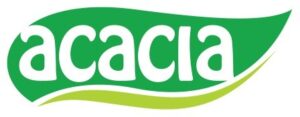

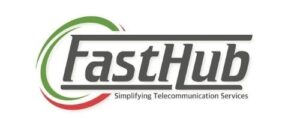

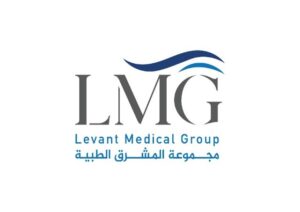

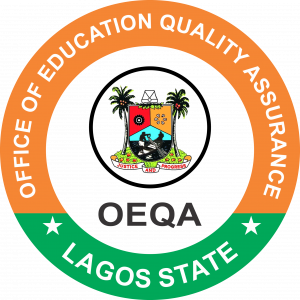
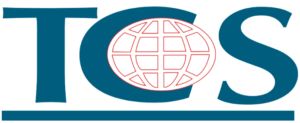
Our overall experience with Maxicert was satisfied. The audit and consulting part was handled carefully, we fulfilled our client requirement of ISO 27001 hassle free.
Kevin Santiago BDM – Clarks Outsourcing, PhilippinesTimely response and knowledge of ISO standards can be seen together in the team of Maxicert, we grow because of the service providers like Maxicert.
Samuel Christopher Quality Assurance Head – OEQA, NigeriaWe did Food safety certification with Maxicert, the service was extraordinary and their consultant had good experience of the subject.
Mr. Venkatesh Production Manager - Acacia Foods and Beverages, ZambiaWe engaged a consultant of Maxicert for our business certification, we now have a well-designed and organized department procedures and we rectify our errors through internal audits regularly.
Abdullah Al Rayes Managing Director – TCS, BahrainTechnical expertise by the team of Maxicert helped us achieving our ISO 13485 certificates, we now proudly say that we have achieved our target, all thanks to the team.
Nady Boustany CEO – LMG, IraqMaxiCert's approach to meet our needs proved instrumental in facilitating a seamless transition throughout the entire ISO certification process for us. Their training sessions are so much helpful.
Ms. Latifa Al Salem Investor portfolio – Ministry of Investment, Saudi ArabiaMaxicert is a one stop solution, we got trainings, documents, audit and certification at one place, they facilitated everything.
Ms. Mariam Chaggama VP – Fasthub, Tanzania





Their presence in Oman made us even better to accomplish our goal of achieving ISO certificates on time, we will definitely recommend their services.
Mr. Sailesh Mohanakrishnan Division Manager – Khimji Ramdas, Oman